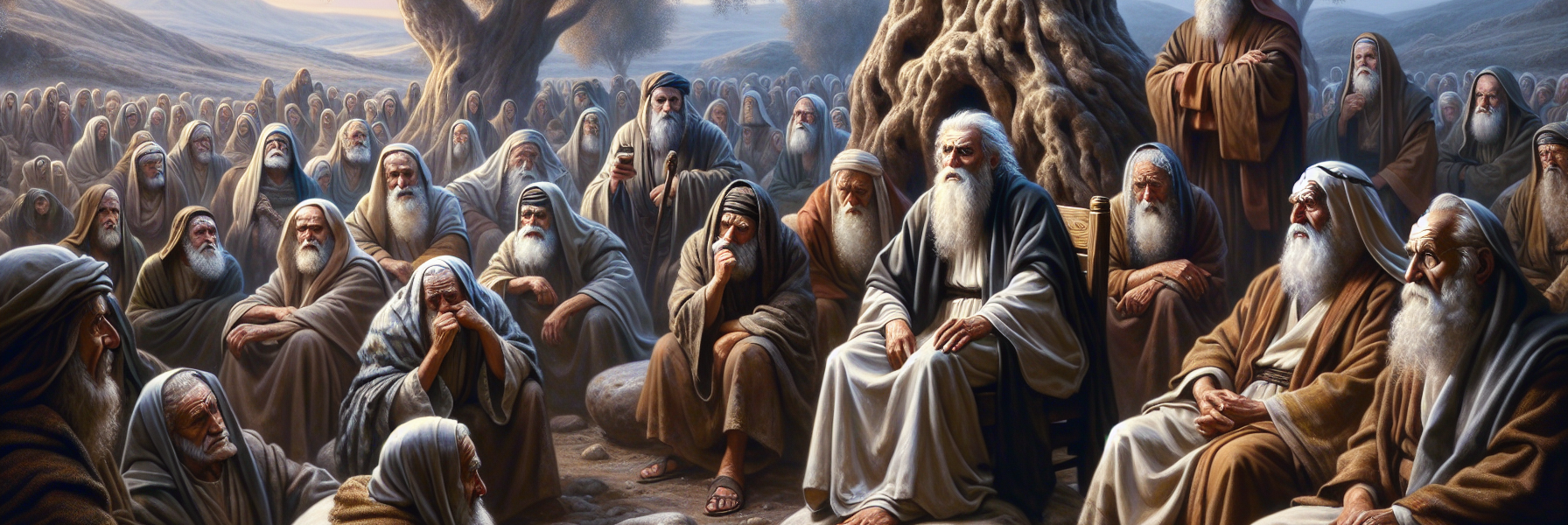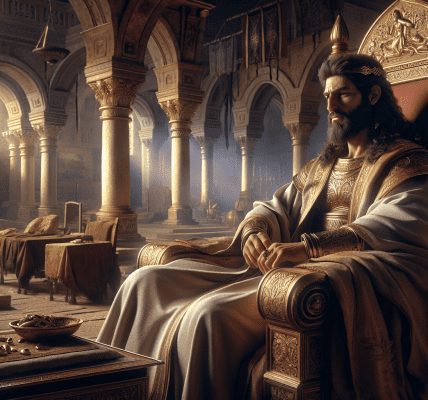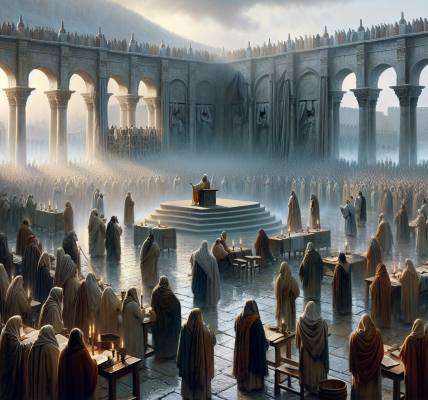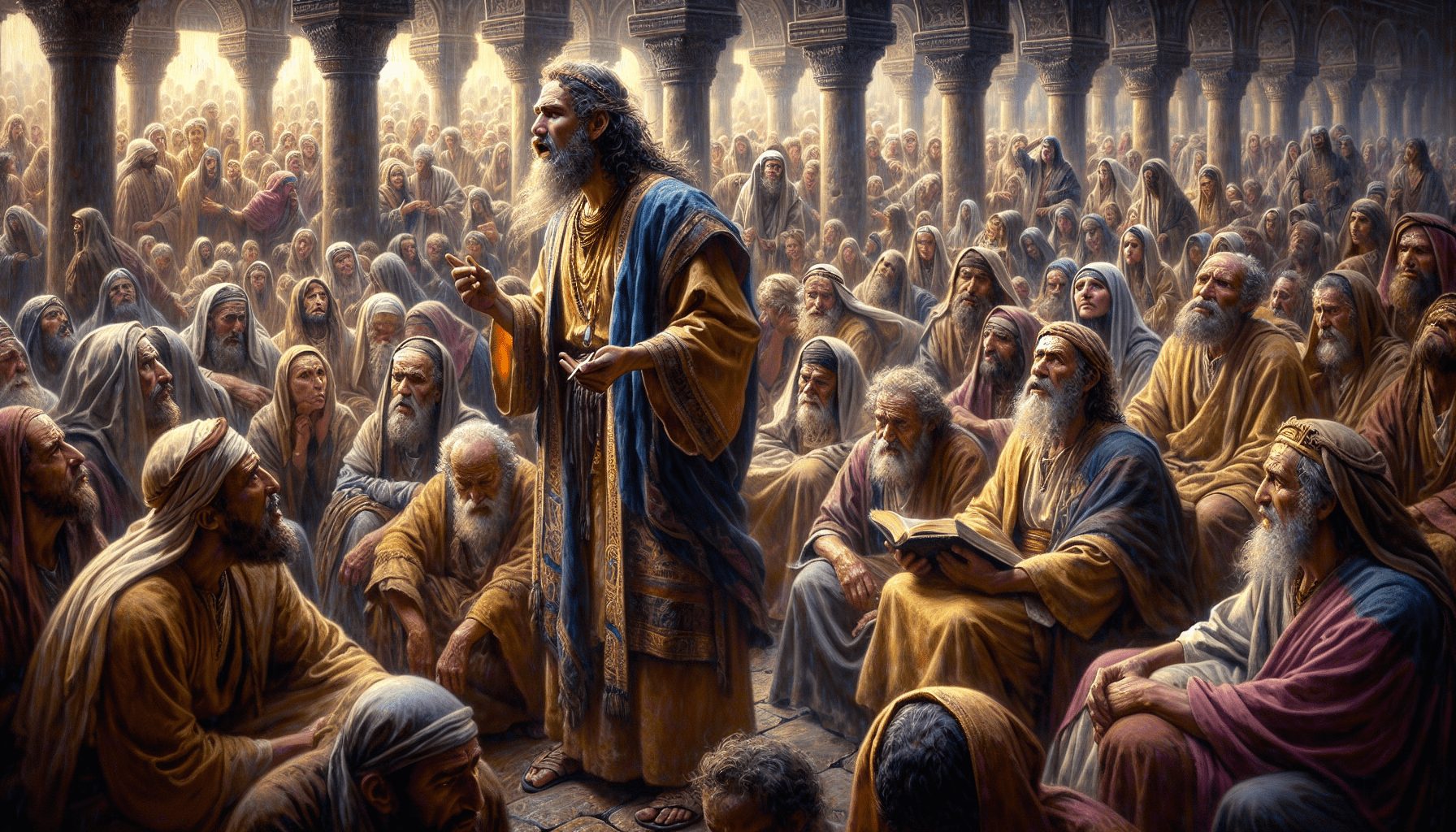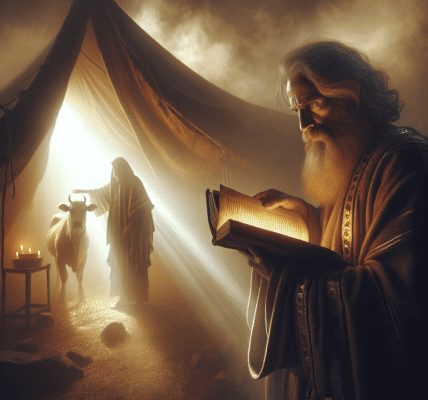**The People’s Demand for a King**
The days were growing dark in Israel, not for lack of sunlight, but for the fading of righteousness. The elders of Israel, their faces lined with worry and their hearts heavy with unrest, gathered together in solemn assembly. They traveled from their towns and villages, their sandals kicking up dust on the road to Ramah, where the prophet Samuel dwelled.
Samuel, now an old man with silver-streaked hair and a beard as white as the fleece of a lamb, sat beneath the shade of an olive tree, his hands resting on his knees. His bones ached with the years, but his spirit remained sharp, attuned to the voice of the Lord. He had judged Israel faithfully, traveling from Bethel to Gilgal to Mizpah, settling disputes and calling the people back to the ways of their God. Yet now, as the elders approached, their expressions grim, he knew their coming was not for wisdom—but for rebellion.
“Samuel,” their spokesman began, his voice rough like gravel, “you are old, and your sons do not walk in your ways.” The words stung, for they were true. Joel and Abijah, his own flesh and blood, had turned aside after dishonest gain, taking bribes and perverting justice. Samuel had raised them in the fear of the Lord, yet their hearts had grown greedy.
The elder continued, his voice rising with the passion of the men behind him. “Now appoint for us a king to judge us like all the nations.”
The words hung in the air like the scent of impending rain. Samuel’s chest tightened. A king? Like the nations? Had they forgotten that the Lord Himself was their King? That He had brought them out of Egypt, parted the Red Sea, and driven out the Canaanites before them? That He had raised up judges—Gideon, Deborah, Jephthah—to deliver them when they cried out?
Samuel lifted his eyes to heaven, his heart heavy. “Lord,” he whispered in the silence of his soul.
And the Lord answered him, clear as the sound of the shofar at dawn. *“Listen to the voice of the people in all that they say to you, for they have not rejected you, but they have rejected Me from being King over them.”*
Samuel’s breath caught. The weight of the revelation pressed upon him like a millstone. This was not about his age or his sons—it was about their defiance against the Almighty.
The Lord continued, His voice steady as the pillars of the earth: *“As they have done from the day I brought them up out of Egypt until this day, forsaking Me and serving other gods, so they are also doing to you. Now then, obey their voice—only you shall solemnly warn them and show them the ways of the king who shall reign over them.”*
With a heavy sigh, Samuel turned back to the elders. His voice, though aged, carried the authority of a prophet. “This will be the manner of the king who will reign over you,” he declared.
And he painted for them a picture so vivid it made their blood run cold.
“He will take your sons and appoint them to his chariots and his horsemen, and they shall run before his chariots. He will set them to plow his fields and reap his harvest, to forge his weapons and build his armor. He will take your daughters to be perfumers, cooks, and bakers.”
The elders shifted uneasily.
“He will take the best of your fields, your vineyards, and your olive orchards and give them to his servants. He will take a tenth of your grain and your vintage and give it to his officers and courtiers. He will take your male servants, your female servants, the best of your young men, and your donkeys, and put them to his work.”
A murmur rippled through the crowd.
“He will take a tenth of your flocks, and you shall be his slaves. And in that day, you will cry out because of your king, whom you have chosen for yourselves, but the Lord will not answer you in that day.”
Silence fell like a shroud. The elders exchanged glances, their faces hardening.
“No!” one of them said, his voice defiant. “But there shall be a king over us, that we also may be like all the nations, and that our king may judge us and go out before us and fight our battles.”
Samuel closed his eyes briefly, sorrow etching deep lines into his face. They had not listened. They would not listen.
Once more, he sought the Lord. And once more, the Lord answered. *“Listen to their voice and make them a king.”*
With a slow nod, Samuel dismissed the elders. “Return to your cities,” he said.
As they departed, their sandals crunching on the dry earth, Samuel remained beneath the olive tree, his heart heavy with the knowledge of what was to come. The people had chosen a path of earthly kings, turning away from the King of Heaven.
And God, in His wisdom, would let them have their way.
